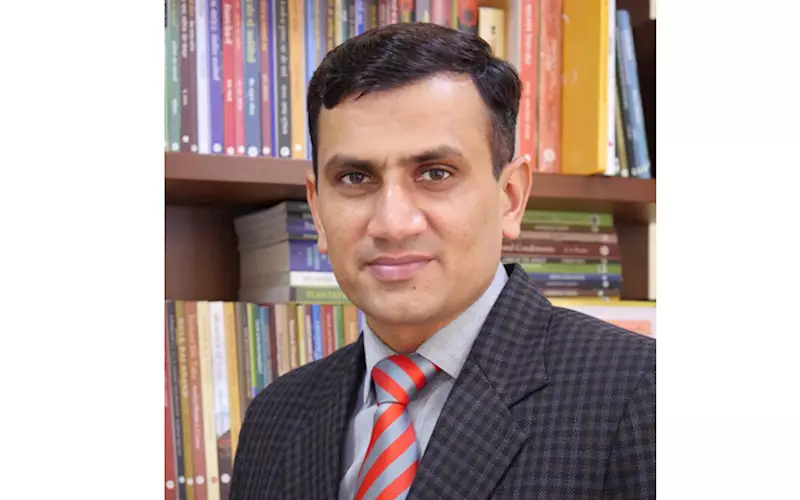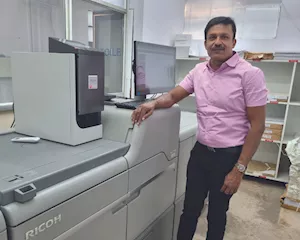NBT offering a platform for emerging voices
Yuvraj Malik, director, National Book Trust, India, explains how the PM-YUVA Mentorship Scheme is promoting a new generation of authors.
04 Jan 2022 | By PrintWeek Team
Sometimes new ideas and thoughts create space for themselves in an unassuming manner and become a catalyst to bring about a silent revolution which is noticed only when they touch us in day-to-day life. This is exactly how the PM-YUVA Mentorship Scheme, launched under the vision of the Prime Minister of India to discover, recognise, and promote a new generation of authors has achieved.
The scheme which was launched through an All-India contest inviting book proposals on the theme of India’s National Movement in 22 official languages and English by the Ministry of Education with National Book Trust, India as Implementing Agency, drew an unprecedented response.
More than 16,000 book proposals were received on themes like national movement of India, unsung heroes, role of unknown places, women leaders etc. in both fiction and non-fiction category in 23 languages. Now, the results of 75 authors have been announced and the journey towards developing their books through the Mentorship programme has kicked off.
This needs to be underlined and emphasised that presentation of a book proposal in 5,000 words with synopsis and chapter plans as asked for such a challenging All-India contest is in itself a unique initiative and highlights the high priority being given to the very act of thinking, reading, writing, and also the idea of learning and writing about one’s national heroes and their contribution.
In fact, if one looks at it closely, the PM-YUVA Scheme seeks to become a groundbreaking platform, since it is not only promoting young authors, it is also promoting the idea of learning about and documenting the trials and tribulations of the country as a whole while it was trying to come out of the yoke of British colonialism. Since the ambassadors of such discoveries are going to be young authors, some of them as young as 15 years old, the possibility of its long-term impact can hardly be over emphasised.
One of the major facets that has emerged out of the entire exercise is that the final list of 75 authors has in a very natural way been able to achieve gender equality with male and female authors making to the final list in equal numbers — 38 men and 37 women. In this sense, one can say that many of the large scale educational and empowerment programmes for the girl child over the years have been able to make their impact felt.
Further, how literature can become a tool, rather a unifying thread for cultural and literary understanding and integration in the country, is going to be best exemplified when the young authors of different linguistic backgrounds and traditions would come together to explore, learn and write about various known and unknown facets of national movement through their books.
It goes without saying that a national authors’ Mentorship Scheme with its emphasis on providing space to the writers of all major Indian languages promises to provide valuable insights into the multi-lingual fabric of the country to the prospective writers — an insight that may take a much longer route to negotiate for an author belonging to a particular language.
The proper understanding and perspectives about the multi-lingual fabric of the country among young authors can provide them a much better understanding of the complex reality of India and the multi-dimensional angles that make up the cultural and literary heritage of the country.
This will also take forward the idea of Ek Bharat, Shreshtha Bharat, in tune with the vision of the Honourable Prime Minister. Since the books published under the PM-YUVA Scheme will also be later translated into other Indian languages, this will be in tune with the motto of National Book Trust, India — Ekah Sutte Saklam.
Once the Prime Minister Shri Narendra Modi stated that ‘If the 21st Century is the era of knowledge and of knowledgeable human-force, then, to extol this force, …(we) must form a strong bond with books.’
It is indeed a matter of privilege for National Book Trust, India to be entrusted with this project of national significance of nurturing a young generation of thought leaders as part of the Azadi Ka Amrit Mahotsav programmes to commemorate 75 years of India’s independence. One hopes that some of the selected authors will make their mark on national and international scene to realise the immortal words of the Nobel Laureate Gurudev Rabindranath Tagore:
Where the mind is without fear and the head is held high;
Where knowledge is free;
Where the world has not been broken up into fragments by narrow domestic walls;
Where words come out from the depth of truth;
Where tireless striving stretches its arms towards perfection…














 See All
See All